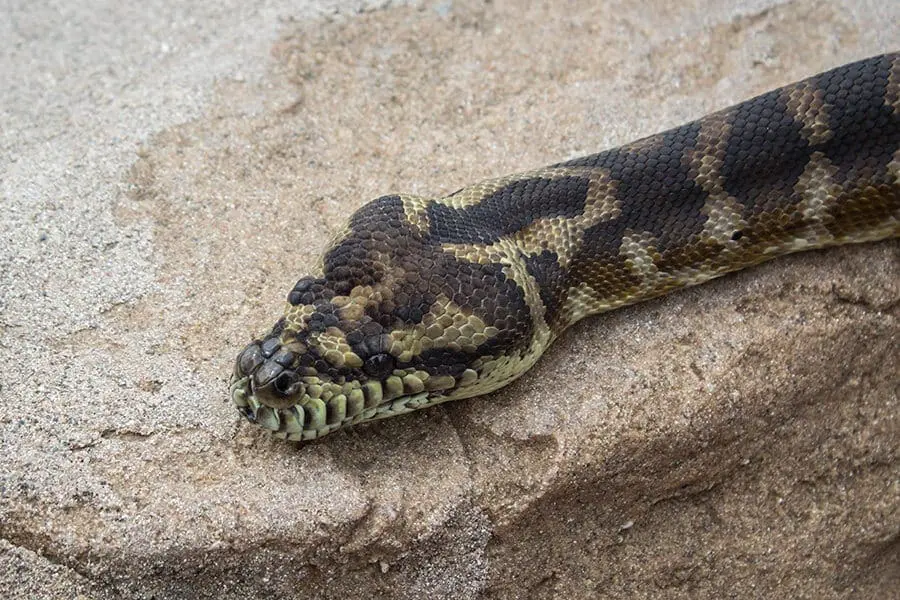

Louie, a carpet python.
You may be a little less than enthused about snakes, and you’re not alone; a 2001 Gallup poll found fear of snakes is the most common phobia in the United States. Though this aversion may be evolutionary and served our ancestors well thousands of years ago, there are many more reasons to celebrate snakes than there are to fear them.
The diversity of snakes is fascinating; the Barbados threadsnake measures a mere four inches while some pythons have reached thirty feet in length! They range from bright, vivid colors to eerily accurate camouflage. You’ll find them almost everywhere, too—only Antarctica, Iceland, Ireland, Greenland, New Zealand and a handful of other island nations are free of native snakes.
Depending on the species and location, snakes sit between the middle and top of the food chain. They are strictly carnivorous, helping to limit populations of rodents, insects and other “pesky” critters. However, snakes are not the voracious predators movies and TV have made them out to be; cold-blooded animals have a slower metabolism, and it may take weeks or even months for them to digest a meal. In turn, they may fall prey to larger predators—including other snakes! As if that weren’t enough, the unique properties of venom are used to treat diabetes and heart disease, and could help patients with cancer, autoimmune diseases and chronic pain in the near future.
Speaking of venom, a mere six of the 44 species native to Florida are venomous, and they’re typically quite reclusive. Educate yourself on how to identify the snakes that live in your area, and if you do happen to cross paths with a venomous snake, leave it alone and keep your distance; it’s likely much more scared by your presence than you are of its.
If a venomous snake is sticking around your property, remove plant debris, food scraps and other objects that may attract prey items. You can also call a licensed wildlife trapper to have it removed and relocated.
Snakes need our help. Habitat loss, competition with introduced species and human hunting all pose serious threats to these slithery reptiles in our backyard and around the world. We’re proud to have supported Biodiversity Conservation Nepal and Save the Snakes through our Quarters for Conservation and Zoo Teen programs. Educate yourself and others about the value of snakes or take things a step further by donating to or volunteering for a snake conservation organization!